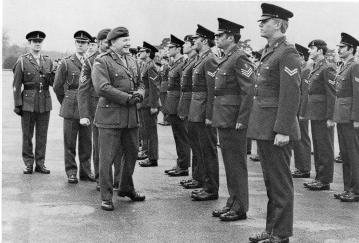

Plate 39. 6th Field Force HQ & Signal Squadron - June 1979
Click to enlarge the picture.
Forming Up 1977 - 1978
The Army Restructuring Plan 1975 had wide ranging implications for the British Army. The Plan called for a fourth division in BAOR and 3rd Division in Bulford was ordered to relinquish its United Kingdom Mobile Force (UKMF) role and move to Germany and restructure as an armoured division. 16th Parachute Brigade in Aldershot was also ordered to restructure and to take on the UKMF role previously held by 3rd Division.
It therefore came about that on 1 April 1977, 16th Parachute Brigade reorganised and was re-designated 6th Field Force. HQ 16th Parachute Brigade and 216 Parachute Signal Squadron amalgamated on the same day to form the new integrated 6th Field Force HQ and Signal Squadron.
Throughout 1977 the new unit devoted itself to reorganisation. It expanded dramatically in size and took on additional equipment. Soldiers arrived direct from training and from other units. The role of the Squadron included both communications support for 6th Field Force and administrative support for the Headquarters.
On 1 April 1978, 6th Field Force assumed the full role of the UKMF and all training was designed to meet this requirement. In essence, the unit was no longer a red beret unit and drew its manpower from all resources of the Corps. The unit also contained a considerable contingent of RCT, REME, RPC, RAOC as well as soldiers from the RAPC, ACC and APTC. However, the spirit of 216 Parachute Signal Squadron lived on. On 12 June 1977, a Squadron team led by Captain Murray Martin-Rhind won the coveted Welsh 3000 Trophy in a record time of 7 hours 39 minutes.
Individual reinforcements on various deployments continued and in August 1977 a Radio Relay Detachment (C50) was deployed to Northern Ireland to provide part of the communications for the Queen's Jubilee visit to the Province.
Military Aid to Civil Ministries - Christmas 1977
Deployment of the unit immediately prior to Christmas is not a new experience. Christmas 1977 was no exception and was marked by strike action in the Fire Service. On 3 December, 19 SNCOs deployed to Blackdown and 20 soldiers deployed to Portsmouth for training as fire engine (Green Goddess) drivers and pump operators as part of the first phase of Operation BURBERRY. This operation was mounted by the Ministry of Defence to provide fire-fighting crews during the strike action by the Fire Service. On 15 December the remainder of the Squadron undertook training at Blackdown. 6th Field Force HQ and Signal Squadron, with additional crews from 6th Field Force Ordnance Company and 6th Field Ambulance deployed to the Swansea and Cardiff areas and took over fire fighting duties from the Civil Fire Service. Deployment started on 16 December and the main body deployed by road between 17 - 21 December. The Squadron was tasked to provide a 'flying column' for South Wales to cover any major disaster. This 'flying column' was based at The Grange TA Centre in Swansea. The balance of the Squadron deployed to Richardson Road in Swansea, Maindy Barracks in Cardiff, Abercynon and Neath to cover local fire stations affected by the strike. The majority of men spent Christmas on duty but when shift work allowed, celebrations took place. Fire-fighting crews from the Squadron dealt with numerous minor fires and the 'flying column' deployed once to a major warehouse fire in Swansea.
The Squadron were all back home from Wales by 10 January 1978.

Plate 40. Squadron Farewell Parade for Brigadier M S Gray OBE 2 March 1979
Click to enlarge the picture.
Completion of Restructuring 1978 - 1979
Throughout 1978 and 1979 the Squadron completed the final measures of the restructuring programme. By mid 1979 the unit was fully up to strength in men and became the largest minor unit in the British Army. UKMF training had started in 1977 and continued throughout this period.
In June 1978 Major M Mcl Ayrton took over command of the Squadron from Major Blessington. Captain (QM) J G Turner was awarded the MBE in the 1979 New Year's Honours for his distinguished work in the Squadron during restructuring. The Squadron also won the Army Minor Units Boxing Championships for 1978.
Between mid 1978 and the end of 1979, the Squadron had exercised in its UKMF role in a variety of areas overseas. Individual reinforcements to Northern Ireland, Belize and UNFICYP continued.
Life for the Unit now settled into the hectic routine so familiar to those stationed in Aldershot. Christmas 1979, like so many a Christmas before, saw members of the unit being deployed abroad. This time as part of the Commonwealth Ceasefire Liaison Advisory and Monitoring Organisation in Rhodesia.
The future will undoubtedly see many more deployments and many more changes.